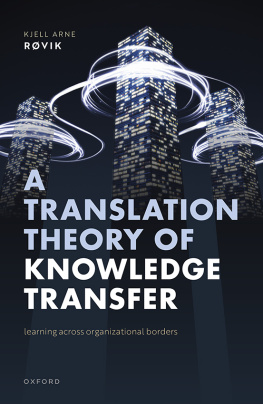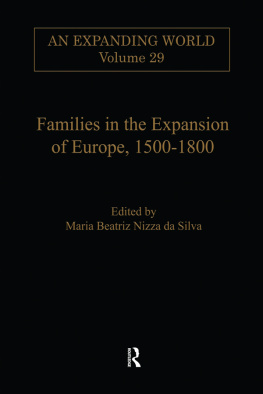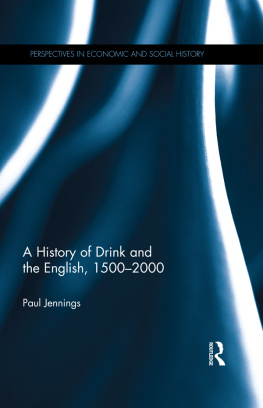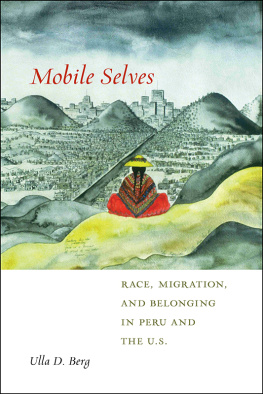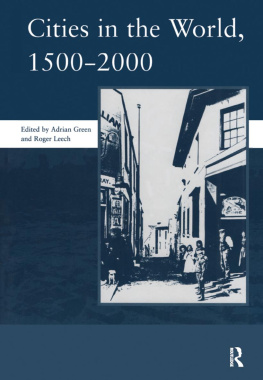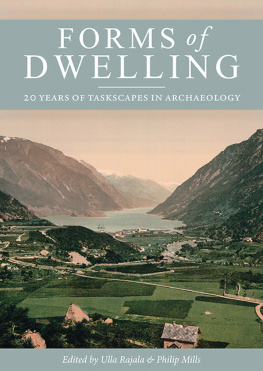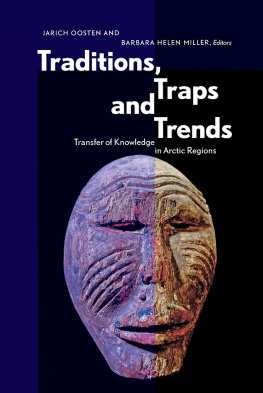Families, Values, and the Transfer of Knowledge in Northern Societies, 15002000
This edited collection sheds light on Nordic families strategies and methods for transferring significant cultural heritage to the next generation over centuries. Contributors explore why certain values, attitudes, knowledge, and patterns were selected while others were left behind and show how these decisions served and secured families well-being and values. Covering a time span ranging from the early modern era to the end of the twentieth century, the book combines the innovative history from below approach with a broad variety of families and new kinds of source material to open up new perspectives on the history of education and upbringing.
Ulla Aatsinki is a researcher at the University of Tampere.
Johanna Annola is a research fellow at the Centre of Excellence in History of Experiences, University of Tampere.
Mervi Kaarninen is a senior lecturer in History at the University of Tampere.
Routledge Studies in Cultural History
The Irish and the Origins of American Popular Culture
Christopher Dowd
The Medieval and Early Modern Garden in Britain
Enclosure and Transformation, c. 12001750
Edited by Patricia Skinner and Theresa Tyers
Historical Memory of Central and East European Communism
Edited by Agnieszka Mrozik and Stanislav Holubec
War Experience and Memory in Global Cultures Since 1914
Edited by Angela K. Smith and Sandra Barkhof
Libraries, Books, and Collectors of Texts, 16001900
Edited by Annika Bautz and James Gregory
Monsters and Borders in the Early Modern Imagination
Edited by Jana Byars and Hans Peter Broedel
The Enlightenment, Philanthropy and the Idea of Social Progress in Early Australia
Creating a Happier Race?
Ilya Lazarev
The Transatlantic Genealogy of American Anglo-Saxonism
Michael Modarelli
Anxieties of Belonging in Settler Colonialism
Australia, Race and Place
Lisa Slater
Families, Values, and the Transfer of Knowledge in Northern Societies, 15002000
Edited by Ulla Aatsinki, Johanna Annola, and Mervi Kaarninen
For more information about this series, please visit: www.routledge.com/Routledge-Studies-in-Cultural-History/book-series/SE0367
Families, Values, and the Transfer of Knowledge in Northern Societies, 15002000
Edited by Ulla Aatsinki, Johanna Annola, and Mervi Kaarninen
First published 2019
by Routledge
52 Vanderbilt Avenue, New York, NY 10017
and by Routledge
2 Park Square, Milton Park, Abingdon, Oxon, OX14 4RN
Routledge is an imprint of the Taylor & Francis Group, an informa business
2019 Taylor & Francis
The right of Ulla Aatsinki, Johanna Annola, and Mervi Kaarninen to be identified as the authors of the editorial material, and of the authors for their individual chapters, has been asserted in accordance with sections 77 and 78 of the Copyright, Designs and Patents Act 1988.
All rights reserved. No part of this book may be reprinted or reproduced or utilised in any form or by any electronic, mechanical, or other means, now known or hereafter invented, including photocopying and recording, or in any information storage or retrieval system, without permission in writing from the publishers.
Trademark notice: Product or corporate names may be trademarks or registered trademarks, and are used only for identification and explanation without intent to infringe.
Library of Congress Cataloging-in-Publication Data
Names: Aatsinki, Ulla, editor. | Annola, Johanna, editor. | Kaarninen, Mervi, editor.
Title: Families, values, and the transfer of knowledge in Northern societies, 15002000 / edited by Ulla Aatsinki, Johanna Annola, and Mervi Kaarninen.
Description: New York : Routledge, 2019. | Series: Routledge studies in cultural history ; Volume 66 | Includes bibliographical references and index.
Identifiers: LCCN 2018042651 (print) | LCCN 2018052909 (ebook) | ISBN 9780367077570 (hbk.) | ISBN 9780429022623 (ebk.)
Subjects: LCSH: FamiliesFinlandHistory. | FamiliesScandinaviaHistory. | ValuesFinlandHistory. | ValuesScandinaviaHistory.
Classification: LCC HQ638.3 (ebook) | LCC HQ638.3 .F36 2019 (print) | DDC 306.85094897dc23
LC record available at https://lccn.loc.gov/2018042651.
ISBN: 978-0-367-07757-0 (hbk)
ISBN: 978-0-429-02262-3 (ebk)
Typeset in Sabon
by Apex CoVantage, LLC
Contents
ULLA AATSINKI, JOHANNA ANNOLA, AND MERVI KAARNINEN
PART I
Raising a Family
SATU LIDMAN
RAISA MARIA TOIVO
ANTTI HKKINEN
PART II
Transferring Livelihood Values
ULLA IJS
MERJA UOTILA
VIBEKE KIEDING BANIK AND LAURA EKHOLM
SINIKKA SELIN
PART III
Focusing on Social Mobility
OLLI MATIKAINEN
JOHANNA ANNOLA
MERVI KAARNINEN
PART IV
Dealing with Tensions
ULLA AATSINKI
ASTRI ANDRESEN
METTE BUCHARDT
This book is a result of a research project called History of Society: Re-thinking Finland 14002000, a Finnish Centre of Excellence in Historical Research, University of Tampere (20122017), funded by the Academy of Finland. The Centre of Excellence employed a transnational, comparative perspective and a longue dure approach to the history of society. The work was organised around four research teams, one of which focused on communities. This book is produced by the community team. The team, led by Professor Pirjo Markkola (University of Tampere), studied how people have organised their everyday lives in their own communities. It explored the historical rules, divisions, limits, and spaces of social life and discussed how these related to local, regional, and national structures and transnational ideologies. The editors of this collection of essays were members of the community team. The collection is based on a series of workshops, organised by the editors in 20142015 and funded by the above-mentioned Centre of Excellence. The editors want to thank Professor Pirjo Markkola and the anonymous reviewers for their fruitful comments, as well as Matthew James (University of Tampere) for proofreading the manuscript.
Ulla Aatsinki, Johanna Annola, and Mervi Kaarninen
The Nordic societies are known for their welfare state model and equality. They have dominated international statistics on egalitarianism, well-being, happiness, and education in the twenty-first century.1 While it has been suggested that this development is the result of the long-standing stability and homogeneity of the Nordic societies, the overall picture is much more complicated: Nordic communities and societies have undergone changes, too. All major global ideological, economic, and cultural turns and crises have reached the north of Europe over the centuries. The consequences of these crisessuch as changes of national borders and constitutions; the impact of international finance and trade; transfers of cultures, religions, and ideas; and experiences of repression and migrationhave had a significant impact on every Nordic society.


